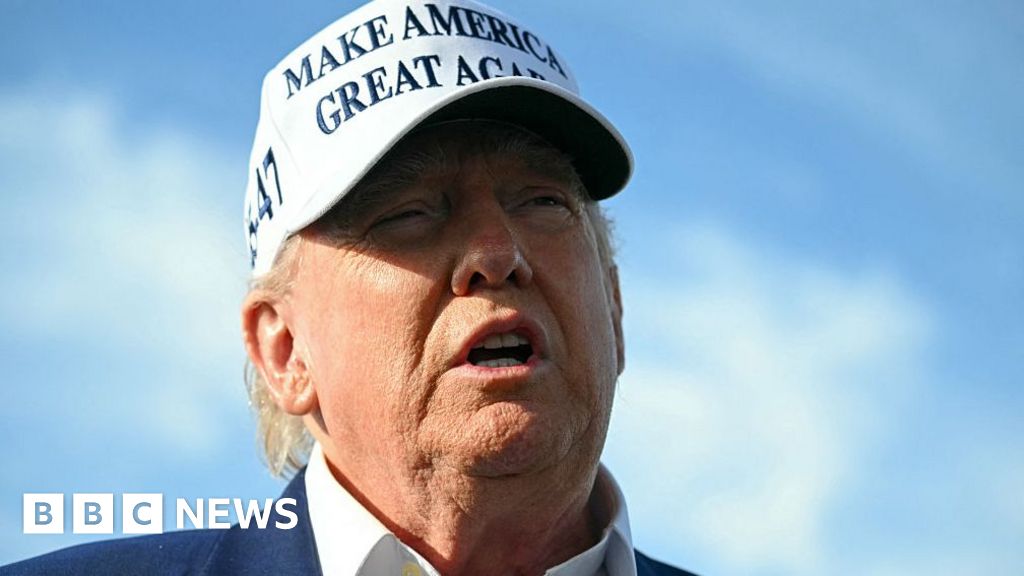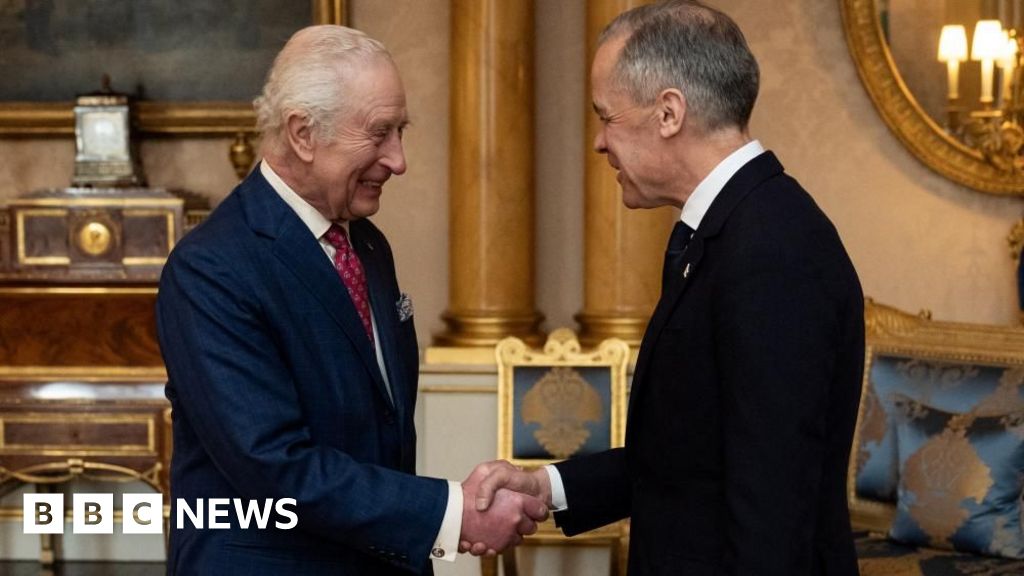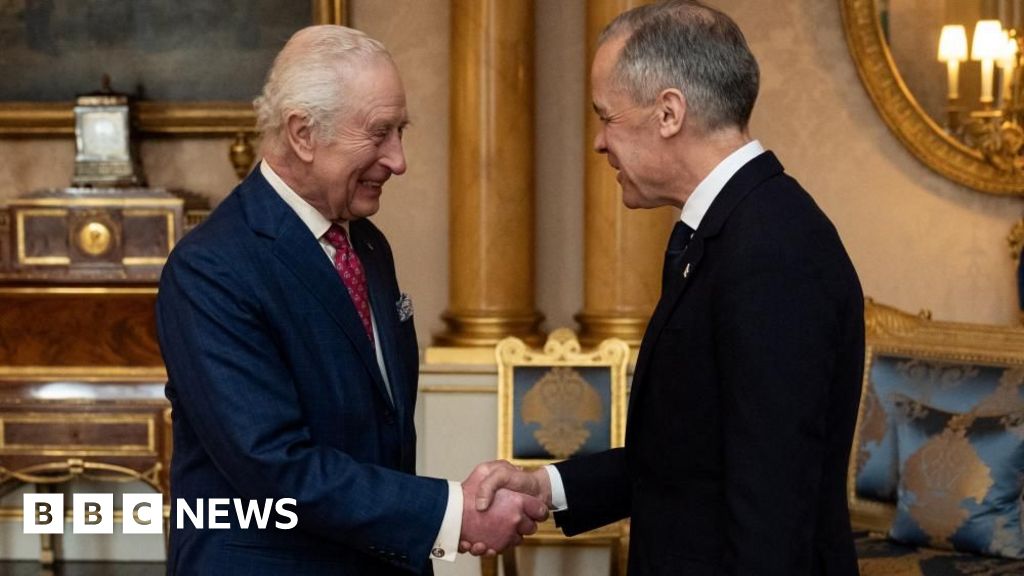ARTICLE AD BOX
By Meryl Sebastian
BBC News, Delhi
Image source, Getty Images
Image caption,Dalit activists and academics are trying to bring caste discrimination to light in the West
The US states of Colorado and Michigan recently declared 14 April as Dr BR Ambedkar Equity Day. Days before that, Canada's British Columbia province also declared April as Dalit History Month.
Ambedkar, the architect of India's constitution, is the venerated leader of the Dalits (formerly untouchables), who suffered from their lowly position in the caste hierarchy. He was born on 14 April 1891.
India's constitution and courts have long recognised lower castes and Dalits as historically disadvantaged groups and offered protections in the form of quotas and anti-discriminatory laws.
Now Dalit activists and academics, particularly in the US, are trying to bring in similar recognition in the West, where the Indian diaspora has often strived to be the "model minority" - aspiring, diligent immigrants who assimilate seamlessly into the country.
"Ambedkar once said, 'If Hindus migrate to other regions on earth, Indian caste would become a world problem.' That is precisely what is happening now in the United States," Rama Krishna Bhupathi of the US-based civil rights group Ambedkar International Center told the BBC.
Dalit activists say that for decades, discrimination practised by upper-caste Indians - especially in universities and technology firms - didn't get attention.
But over the past few years, many have been speaking out.
In a September 2020 episode of the NPR show Rough Translation, a tech employee using the alias of Sam Cornelius spoke about co-workers patting him on the back to figure out if he was wearing the white thread worn by men of the Brahmin caste.
"They will call you for a swim, you know? 'Hey. Let's go for a swim' - because everybody takes their shirt off. And they all know who are wearing threads, who are not," he said on the show.
Others also spoke of feeling afraid and uncomfortable as Indians asked each other their caste at university parties.
Image source, Getty Images
Image caption,Prem Pariyar, a Nepali-origin academic, said he often used a metaphor from Isabel Wilkerson’s book to explain caste in America
The work of activists from marginalised castes and a rise in online "safe" spaces have increased the visibility of this issue in recent years.
The Black Lives Matter protests, which intensified after the murders of George Floyd and Breonna Taylor, also had an effect, said Sonja Thomas, an assistant professor who fought for caste protections at Colby College in Maine.
South Asian Americans are now thinking through how anti-Blackness in their own communities might be informed by casteism, she said.
One major change in the past decade, Ms Thomas explained, is that many from the upper-castes are also grappling with their historical privilege.
"Though we are all well-versed in the stories of how our mothers and fathers came here with one suitcase and a handful of dollars in their pocket, we have little understanding of how generations of caste privilege in India helped pave the way for our parents, us and our children to do well in this country," documentary filmmaker Kavita Pillay said in the Caste In America series funded by the Pulitzer Center.
Activists say a pivotal moment in the US was the state of California's 2020 lawsuit against IT conglomerate Cisco and two of its dominant caste employees of Indian origin for harassment and discrimination against a Dalit co-worker.
"The case gave credibility to the efforts that were already being made in the background," the Ambedkar Association of North America (AANA) told the BBC.
Soon after the Cisco case became public, a hotline set up by Dalit rights organisation Equality Labs received reports of caste-based harassment from more than 250 tech workers in Google, Facebook, Apple and several other companies in Silicon Valley.
The Cisco case received support from the workers' union of Google's parent company, Alphabet.
"It was the first time an American institution outside of our countries of origin recognised caste as a significant civil rights problem and one that required governmental litigation," Thenmozhi Soundararajan, founder of Equality Labs, told the BBC.
In 2021, a separate federal lawsuit accused Hindu organisation Bochasanwasi Shri Akshar Purushottam Swaminarayan Sanstha (BAPS) of exploiting Dalit workers to build temples across various sites while paying them far less than the minimum wages.
Image source, Getty Images
Image caption,The Cisco case was a pivotal moment in the fight against caste discrimination in the US
The same year, the University of California, Davis, Colby College, Harvard University and the California Democratic Party added protections against caste discrimination in their policies.
A landmark moment came in January 2022 when California State University became the first and the largest university system in the country to add caste as a protected category in its policy.
The student campaign at Cal State had the support of major labour unions in California which was a "gamechanger" as it highlighted that caste equity was also a workers' rights issue, Ms Soundararajan said.
This solidarity from the labour movement is expected to influence more global conversations on caste equity, she added.
Explaining caste to America
"Unlike race which is mostly based on skin colour", the complex nature of the caste system is difficult to explain to Americans, Mr Bhupathi said.
"It's determined by birth. It determines where you stand in the hierarchical Hindu system," he said.
Prem Pariyar, a Nepali-origin academic and a lead organiser for Cal State's policy change, said he often used the metaphor "caste is the bone and race is the skin" from Isabel Wilkerson's book as an explanation.
The 2020 book - Caste: The Origins of Our Discontents - had compared the histories of caste and race and Mr Pariyar felt it helped spotlight caste discrimination in the US mainstream.
Mr Pariyar's experience had been undermined by upper-caste faculty in his department who said caste discrimination was "an Indian issue" so why discuss it in an American university?
This aversion to acknowledging caste is not uncommon among the dominant caste, said Ms Thomas, whose work delves into caste and gender in Christianity.
Image source, Getty Images
Image caption,Right-wing Indian-American groups often mobilise parts of the diaspora against changes to the status quo in the US
They fear using the word "privilege" would make it seem like they hadn't earned their position in American society where South Asians were a minority as were Hindus and Muslims, she explained.
But caste was a structure of inequality not limited to Hinduism and present within every South Asian religion, Ajantha Subramanium, Professor of Anthropology and South Asian Studies at Harvard, wrote in a letter to Cal State earlier this year.
"Moreover, many oppressed caste individuals are themselves Hindus," she wrote.
The challenge from right-wing Hindu groups
A win for this rights movement in the US has usually been followed by a challenge from right-wing Indian American groups like the Hindu American Foundation (HAF) which mobilise parts of the diaspora against it.
The foundation stood against the Cal State policy and the Cisco case, calling them "discriminatory" and a violation of "the rights of Hindu Americans".
In his book Open Embrace, Verghese K George wrote that the Indian-American community was willing to buy into the narrative that conflated "being Indian with being Hindu and being Hindu with being Indian".
The notion found an easy overlap with the ruling Indian government's agenda of promoting a pan-Hindu identity that did not address caste.
HAF is among several Indian-American organisations that have lobbied for Prime Minister Narendra Modi, who has called the diaspora a "strategic asset".
With BJP's rise in India, such groups felt more empowered to increase their lobbying and legal efforts to curtail any changes to the status quo in the US, Mr Bhupathi said.
But caste equity is a vital and urgent frontier in global civil and human rights, Ms Soundararajan said. "We want to see those oppressed by caste informing institutions on how to transform themselves into places accessible to all."

 3 years ago
97
3 years ago
97








 English (US) ·
English (US) ·